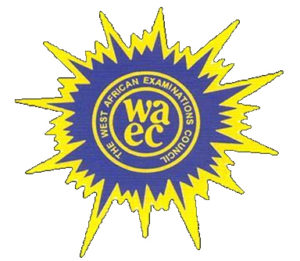WAEC revises rules, regulations to deal with examination irregularities
 West African Examination Council (WAEC) has revised its rules and regulations towards eliminating examination irregularities.
West African Examination Council (WAEC) has revised its rules and regulations towards eliminating examination irregularities.
Mrs Wendy E. Addy-Lamptey, Head of National Office, WAEC, said the revision had become necessary because of the new trends in examination malpractice.
“The revised rules will take effect here in Ghana from this year’s diet of examinations. They include the following: Registration of unqualified candidates, destruction of exhibits by candidates, posting of live questions on the internet, refusal to grant timely access into school premises and misconduct of examination officials at examination centres.
“The revised rules have been sent to all participating schools and are available on the council’s website.”
She said this at the 39th WAEC Distinction Awards Ceremony for 2022 WASSCE School Candidates held in Accra to honour candidates who excelled and distinguished themselves.
Mrs Addy-Lamptey noted that the issue of examination malpractice continued to be “a bane for the Council…”
“Cheating has become the norm for some schools and perpetrators go to any lengths to engage in malpractice. What is most disturbing is the involvement of some school authorities, supervisors and invigilator in this canker, which is eating away the moral fibre of our society.”
She said collusion detected in scripts continued to be the most reported type of examination malpractice adding “out of the total number of candidates that sat for the WASSCE 2022, collusion was detected in the scripts of 24, 070 (5.74per cent) of the candidates”.
According to her, the increasing number of impersonation cases in school examination was also a great cause of worry.
She said at the WASSCE for school candidates (2022), 126 impersonation cases were recorded and reported to the Police.
“Another developing trend, which is pushing itself ahead of the pack in examination malpractice is solicitations to join groups and websites to study some ‘purported WAEC confirmed topics’.
I will categorically state that the Council has not confirmed topics or sanctioned any such confirmed topics from or for any group or organisation.”
Mrs Addy-Lamptey, therefore, advised the public not to click or join any group or site, which shared or taught the so called “WAEC Confirmed Topics”.
She said the Council would continue to adopt stringent measures to preserve the integrity of its examination and called for support of all stakeholders.
“We are all being cautioned not to enter our telephone numbers at such websites as they make use of the numbers to get back to you. Curbing examination malpractice and preserving the integrity of our examinations is a collective responsibility.”
She assured 2023 WASSCE candidates that they could pass their examinations without cheating and congratulated the awardees, saying they were “examples of perseverance and hard work”.
The Excellence and Distinction Awards was instituted by the WAEC Endowment Fund to recognise and publicly acknowledge candidates who performed in the Council’s national and international examinations.
Alex Opoku Manu and Benjamin Eyram Nana Kwame Degbey, both formerly of St James Seminary Senior High School, Sunyani, were adjudged first and second overall best winners respectively in the WASSCE for School Candidates.
Abena Afriyie Poku of the Holy Child School won the third position.
Alex Opoku was adjudged the best student in General Science, Mubarak Illiasu, former student of T.I Ahmadiyya Senior High School, was the best student in General Arts, Ato Kwamena Quansah, a former student of Presbyterian Boys’ Senior High School, Legon, was adjudged the best candidate in Business and Ewura Esi Adobea Otieku-Boadu, a former student of Wesley Girls High School, was best student in Home Economics.
The awardees took home cash prizes, lap top computers, certificates, and plagues.
Their former schools were also given desktop computers and plagues.
A total of 422, 883 candidates took part in the 2022 WASSCE.
Manu and Degbey have picked up their international wards at the recent 71st Annual Council meeting held in the Gambia in March this year.
Source: GNA
